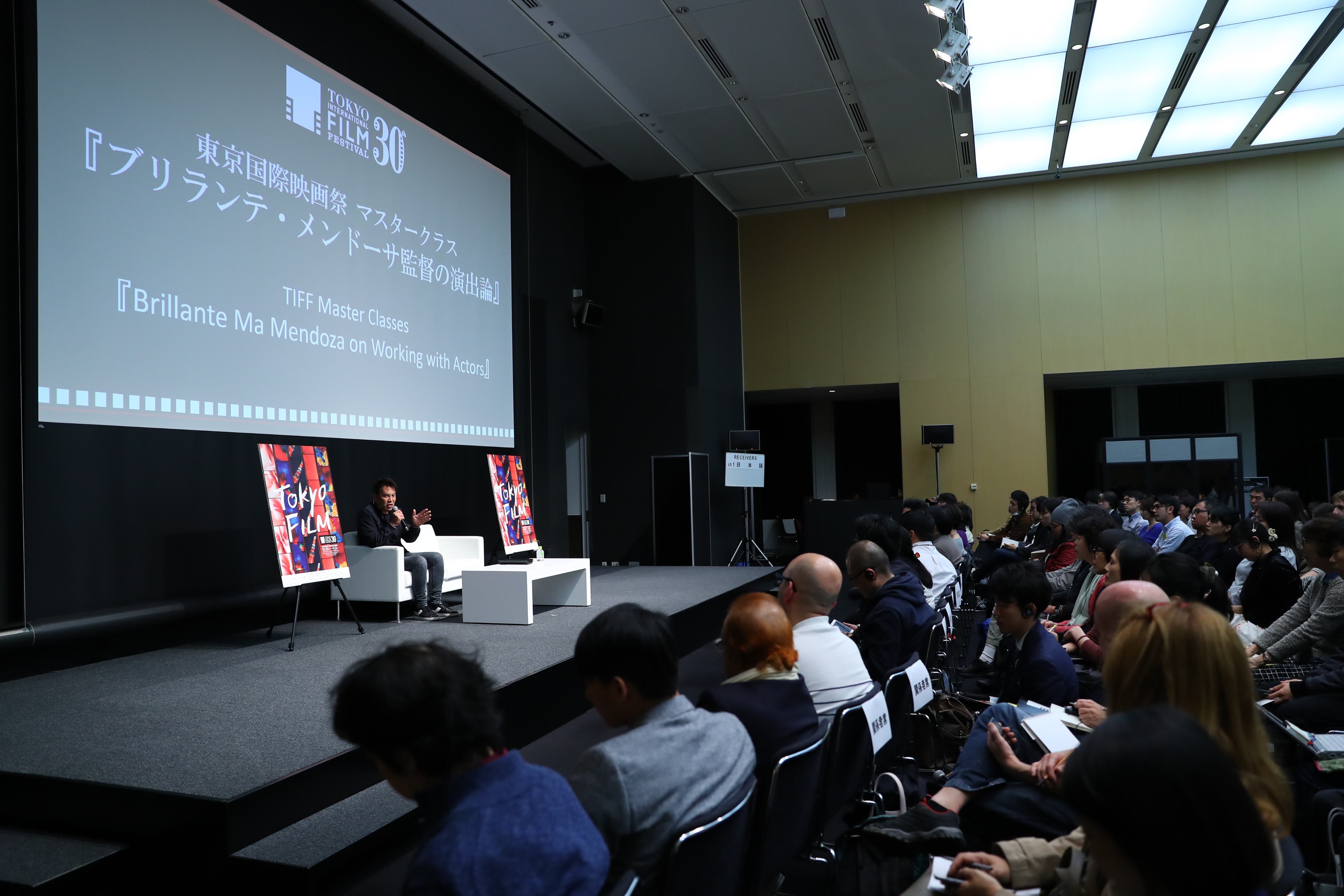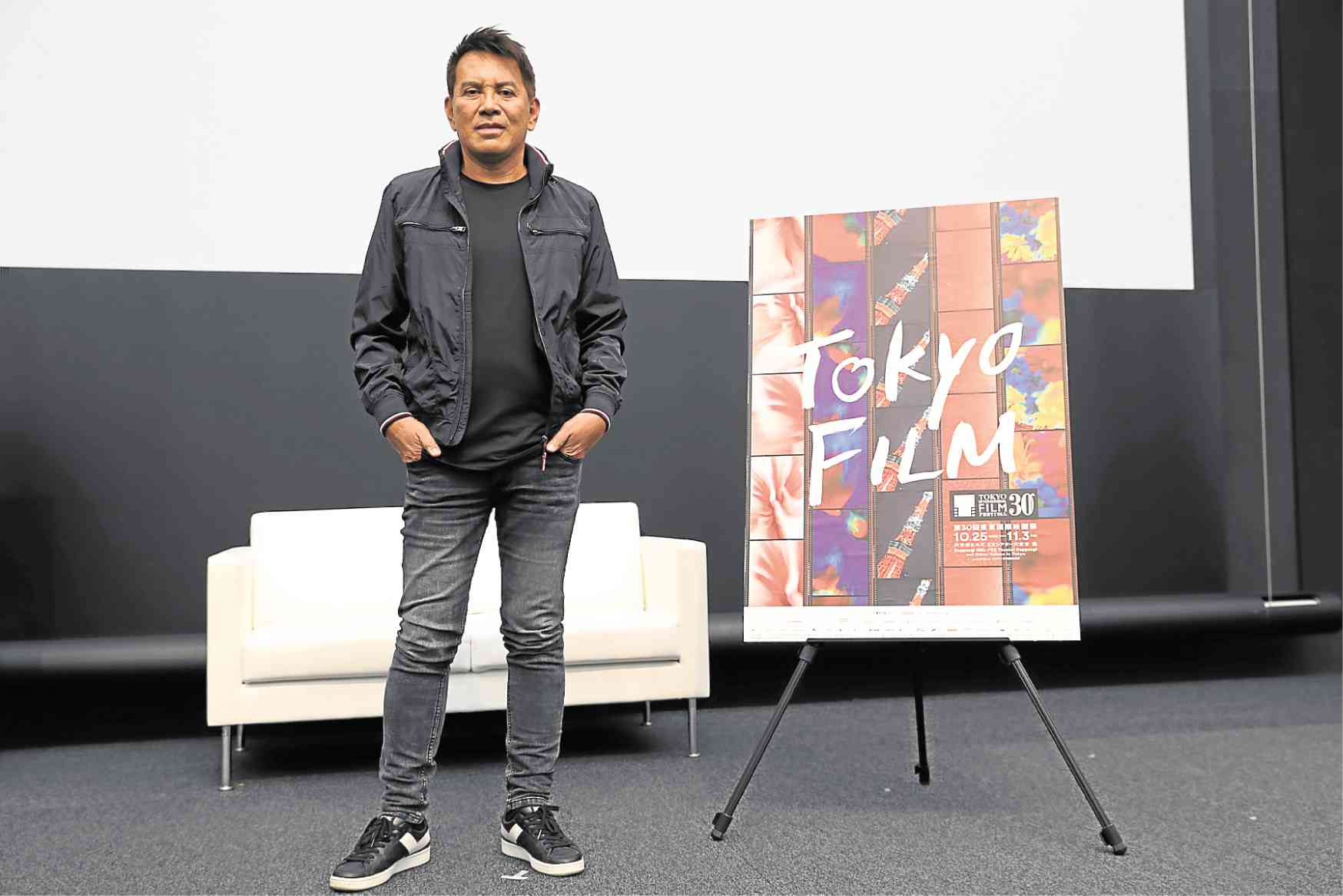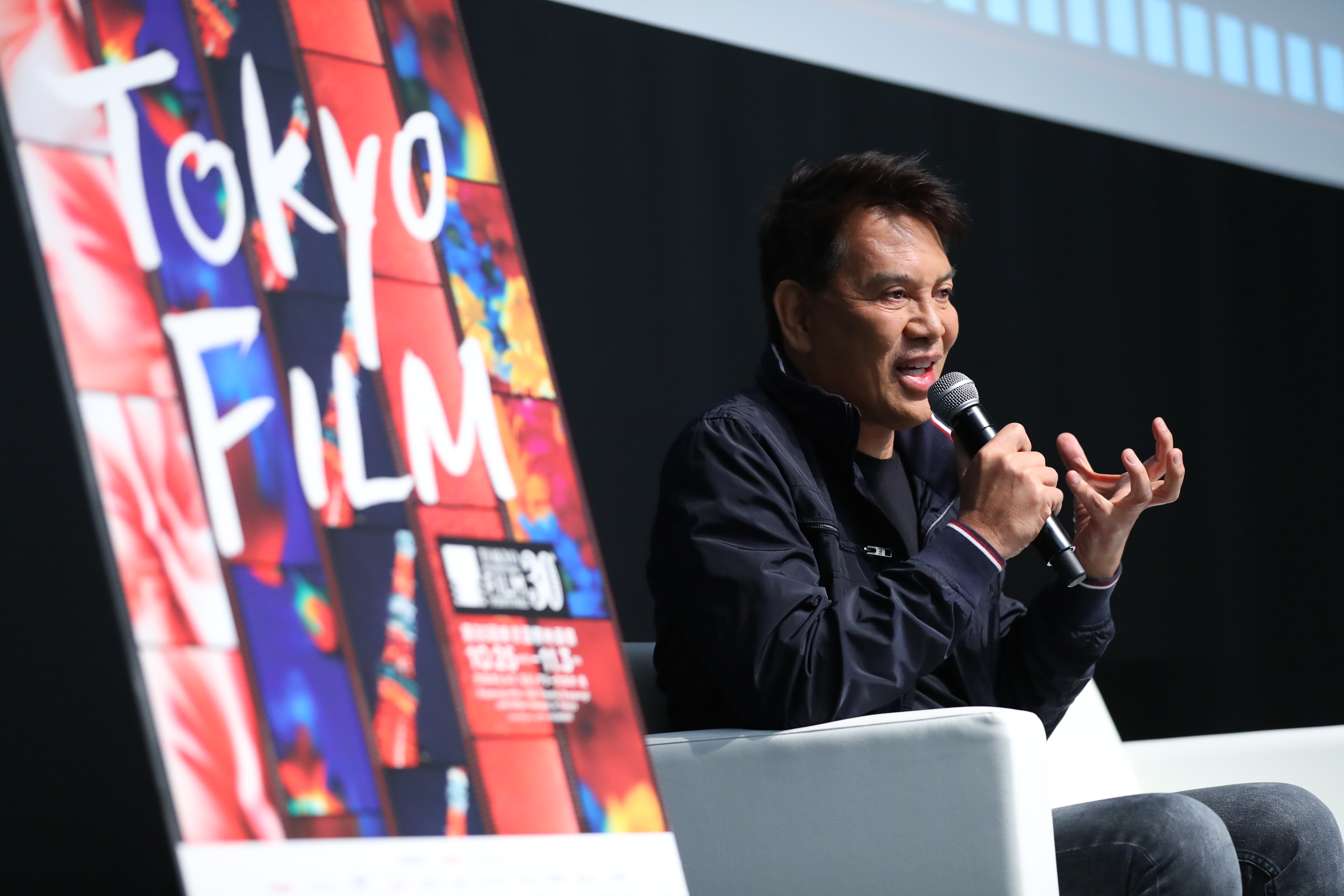Mendoza magic enthralls Japanese fans
TOKYO—In Japan’s capital, Filipino filmmaker Brillante Ma Mendoza is feted like a rock star. It is not uncommon for Mendoza to be trailed by snapshot- and autograph-seeking fans and for his movies to attract a decent crowd abroad.
Such adulation might be a head-scratcher for most Filipinos, but consider this random quote from Singaporean director Kirsten Tan, whose “Pop Aye” was part of the Cross Cut Asia section of the 30th Tokyo International Film Festival, along with the Mendoza-produced “Kristo” (directed by HF Yambao).
During an open forum for the Cross Cut Asia section, Tan told Mendoza that his film, “Ma’ Rosa,” showed “complete mastery” of the craft. She was curious as to how he had captured such “natural and authentic” scenes on film.
Asian Future programmer Kenji Ishizaka called it “Mendoza magic.”
The day before the forum, Mendoza had given a master class in a packed hall at the Tokyo fest. After the master class, which sought to dissect Mendoza’s method in handling actors, the Cannes-winning filmmaker fielded questions from cineastes who were keenly interested in his process.
A viewer asked Mendoza if he practiced scenes with actors before a take. “I rarely rehearse with actors. I only do a dry run for the camera work.”
He cited as example the raid scene in “Ma’ Rosa,” which was released in 20 cities in Japan by distributor Bitters End this year. “I only told the actors that they would be having dinner in that sequence. Then, I instructed the cops to barge into the house. The actors were really caught by surprise. That’s why their emotions were real and raw.”
He compared the filmmaking process to “giving birth.” “In the end, the film is the proof of your journey, the summary of your experiences.”

Brillante Ma Mendoza (right) with the Cross Cut Asia filmmakers (from left) the Philippines’ HF Yambao, Singapore’s Kirsten Tan and Indonesia’s BW Purba Negara. Photo courtesy of the Tokyo International Film Festival
He noted that he usually spends four to five years in story development. He counseled budding directors to simplify. “In his first film, a director tends to mix everything together. In the end, he loses the essence of the story.”
A critic wondered about what Filipino filmmakers could learn from Japanese counterparts and vice versa. “The strength of Filipino filmmakers is content,” he related. “The Philippines is composed of 7,000 islands, and each province has a specific story and culture to share.”
He said he was proud of his country’s colorful chaos and disarming diversity. “It’s very noisy in the Philippines. So I made the commotion a part of the story.”
Now that the Philippines has garnered the world’s attention with its unique stories and artful noise, there’s a need “to improve the technical aspects,” he said, adding that the efficiency and orderliness of Japanese society, as a whole, are admirable.
Last year, Mendoza was part of “Asian Three-Fold Mirror 2016: Reflections,” with the short film “Shiniuma,” which was shot in Hokkaido, Japan.

The packed hall during the Brillante Ma Mendoza Master Class. Photo courtesy of the Tokyo International Film Festival
He remarked that he was not easily daunted by challenges on the set. He recalled: “While filming ‘Shiniuma,’ we were caught in a snowstorm. So I incorporated the awful weather into the storytelling.”
Watching his past films, he conceded that he would often get an urge to revise this or that aspect. “But you can’t change a movie, so you just learn from your mistakes. With each new film, you improve yourself—not just as a director, but also as a person.”
He asserted: “Cinema, like life, is a work in progress.”
















